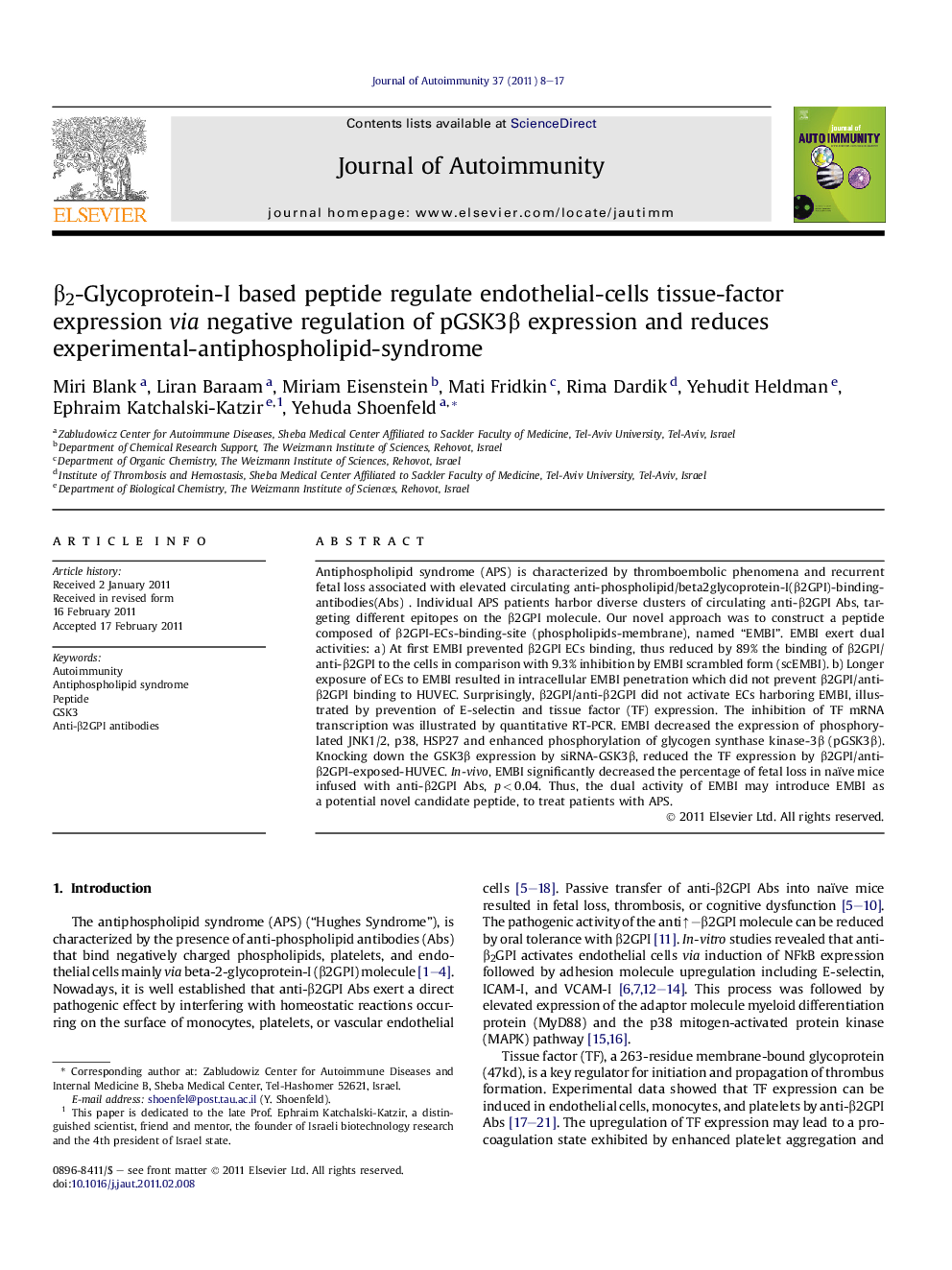| Article ID | Journal | Published Year | Pages | File Type |
|---|---|---|---|---|
| 3368021 | Journal of Autoimmunity | 2011 | 10 Pages |
Antiphospholipid syndrome (APS) is characterized by thromboembolic phenomena and recurrent fetal loss associated with elevated circulating anti-phospholipid/beta2glycoprotein-I(β2GPI)-binding-antibodies(Abs). Individual APS patients harbor diverse clusters of circulating anti-β2GPI Abs, targeting different epitopes on the β2GPI molecule. Our novel approach was to construct a peptide composed of β2GPI-ECs-binding-site (phospholipids-membrane), named “EMBI”. EMBI exert dual activities: a) At first EMBI prevented β2GPI ECs binding, thus reduced by 89% the binding of β2GPI/anti-β2GPI to the cells in comparison with 9.3% inhibition by EMBI scrambled form (scEMBI). b) Longer exposure of ECs to EMBI resulted in intracellular EMBI penetration which did not prevent β2GPI/anti-β2GPI binding to HUVEC. Surprisingly, β2GPI/anti-β2GPI did not activate ECs harboring EMBI, illustrated by prevention of E-selectin and tissue factor (TF) expression. The inhibition of TF mRNA transcription was illustrated by quantitative RT-PCR. EMBI decreased the expression of phosphorylated JNK1/2, p38, HSP27 and enhanced phosphorylation of glycogen synthase kinase-3β (pGSK3β). Knocking down the GSK3β expression by siRNA-GSK3β, reduced the TF expression by β2GPI/anti-β2GPI-exposed-HUVEC. In-vivo, EMBI significantly decreased the percentage of fetal loss in naïve mice infused with anti-β2GPI Abs, p < 0.04. Thus, the dual activity of EMBI may introduce EMBI as a potential novel candidate peptide, to treat patients with APS.
Graphical abstractFigure optionsDownload full-size imageDownload as PowerPoint slide
